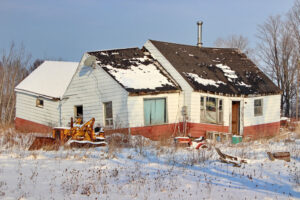Frequently Asked Questions (FAQ)
- How do you jack up a sinking foundation?
Lifting a sinking foundation is typically achieved through a process called piering. Vertical piers are installed deep into the soil beneath the sunken foundation area. Hydraulic jacks on these piers then raise and level the sunken foundation section.
- Can you raise a sinking foundation?
Yes, there are methods to repair a sinking foundation, including Helical Piles, Push Piers, and Polyurethane Foam.
- How do you fix a sinking foundation wall?
To repair a sinking foundation, piers are typically used. These are steel posts driven into the ground around your home, then connected to your foundation with steel brackets. Piers provide stability and prevent further settlement.
- Can I jack up my own foundation?
Attempting to jack up a house or foundation on your own is not advisable. This is a complex task that requires specialized equipment and professional expertise. DIY attempts can lead to further damage or safety risks.
- How long does it take to jack up a foundation?
A home lifting project usually takes around six weeks to complete. The actual process of lifting the house typically takes approximately five days.
- How serious is a sinking foundation?
While some settling is common over time, significant or uneven settling can pose a risk to the structure. It may also require costly repairs to prevent further damage.
- How much foundation sinking is too much?
The industry standard typically considers 1 inch of differential settlement in 20 feet as the threshold for excessive settling. Anything beyond this may be a cause for concern.
- Are corner pops concerning?
Corner pops, while concerning in appearance, are usually not indicative of foundation issues. Consulting a specialist experienced in brickwork can help diagnose and address the issue correctly.
- Can a house slide off its foundation?
Houses not bolted to their foundations can potentially move or slide during seismic events like earthquakes.
- What causes a house foundation to sink?
Foundation sinking is often a result of soil compaction due to the weight of the house, leading to settling and cracking. Water-induced soil changes can worsen the problem.
- What is it called when a foundation is sinking?
Foundation sinking is commonly referred to as "subsidence." This term describes the sinking of the ground beneath a structure, causing the foundation to lose stability and sink.
- How do you fix a heaving foundation?
To address foundation heaving, stabilizing the soil with polymer injection is one technique. For outdoor concrete surfaces with minor heave, grinding the concrete can be used for repairs.
- Are foundation jacks permanent?
Foundation jacks can be permanent solutions to support and stabilize a foundation. Steel floor jacks may also be used to ensure the foundation remains in place.
- How big of a jack do you need to jack up a house?
Lifting a house requires heavy-duty equipment, typically 20-ton or 40-ton house jacks. Ordinary hydraulic jacks are not suitable for this task.
- How many inches is bad foundation?
A 1/16-inch crack is often considered normal when a home settles. Cracks should be vertical and range between 2-6 inches. Horizontal or diagonal cracks may indicate more severe issues.
- How long does it take for a foundation to collapse?
Foundation problems develop gradually over time. It can take years for a foundation issue to become severe enough to risk a structural collapse. Timely intervention is crucial.
- How quickly can you jack up a house?
The speed of lifting a house depends on various factors. In certain cases, the building might be raised gradually, such as 1/8-inch per day, to prevent damage to the interior.
- Are some foundation issues unfixable?
As cracks in the foundation expand, they can become increasingly difficult to repair. It's essential to contact a foundation expert promptly to assess and address the problem.
- When should I be worried about my house foundation?
Minor, fine cracks on exterior walls or steps are typically not a cause for concern. Large, zig-zag patterned exterior cracks or protruding bricks may indicate foundation issues and should be inspected by a professional.



